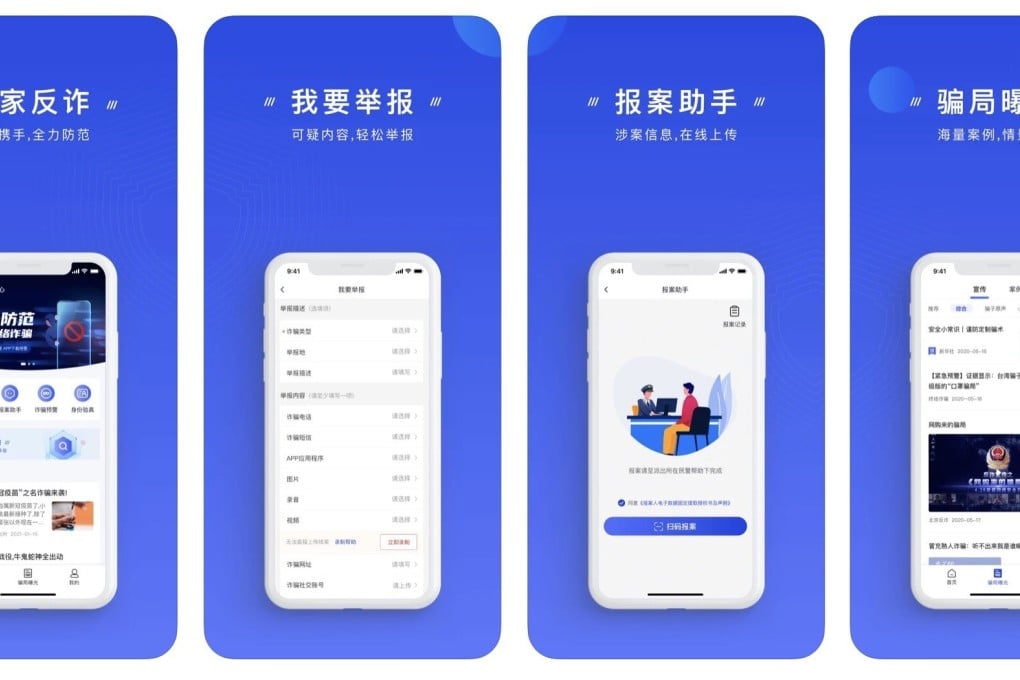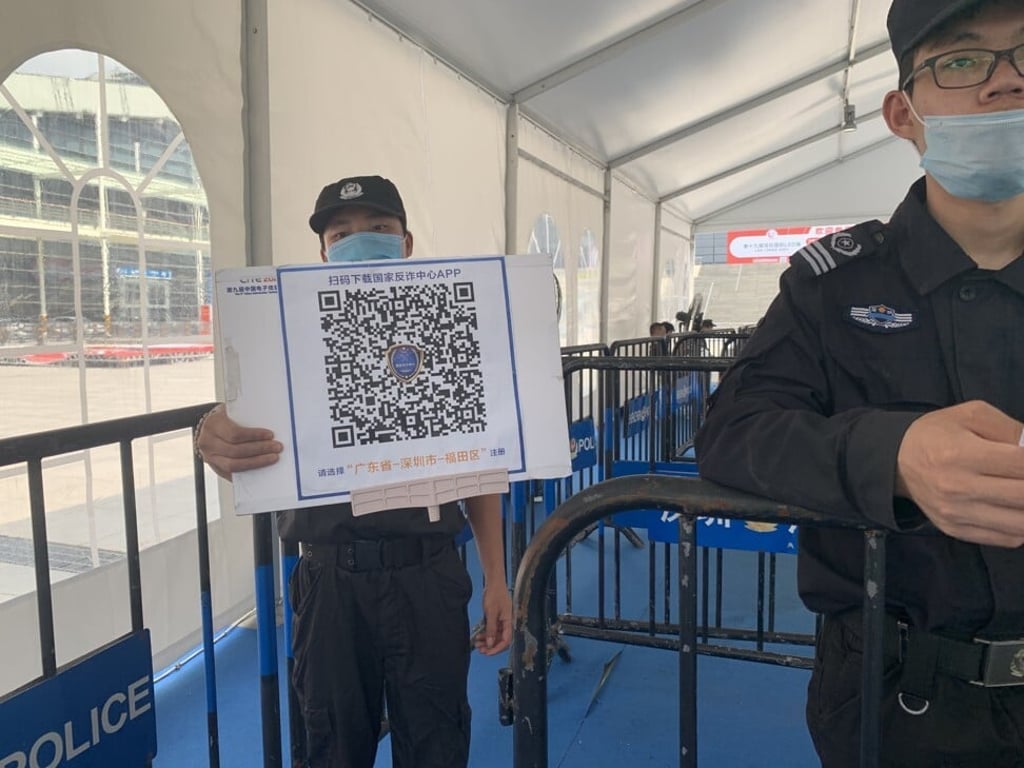China’s most popular app is developed by police and promoted by cyberspace security officer with huge social media followers
- Anti-fraud app is the most downloaded app in local app stores this month amid a state-sponsored promotion campaign
- App soared to top spot within a month of its launch in March, and is now popularised by a cyberspace police officer with large social media followers

An “anti-fraud” app developed by China’s public security ministry, which is able to filter spam calls and warn users of incoming phone calls from abroad, is now the most popular mobile app in the country, thanks to a state-sponsored promotion campaign.
The app, officially named “National Anti-fraud Centre”, has been the most downloaded free iOS app in local app Store since September 1, and was within the top 10 rank in August, according to app Annie. It was the top app during the weekend on Xiaomi’s app market, one of the Android app stores in China, according to app tracker Qimai.

In cities like Shenzhen, the southern technology hub in Guangdong province bordering Hong Kong, banners promoting the anti-fraud app can be seen in subway stations and at residential compounds, with QR codes for people to scan and download.
At the Shenzhen Convention and Exhibition Center in April, people were asked to download the app and present it to security officers, in addition to showing their health codes, before they were allowed to enter, the South China Morning Post reported.
The surge in its popularity this time, however, is helped by local social media platforms like Douyin, a short-video sharing app developed by Beijing-based ByteDance, and that of its rival Kuaishou Technology.